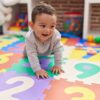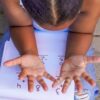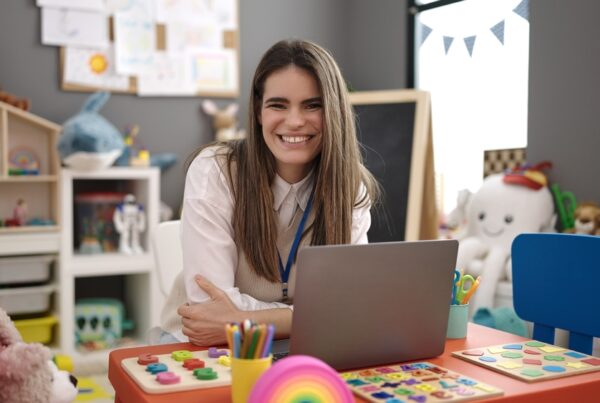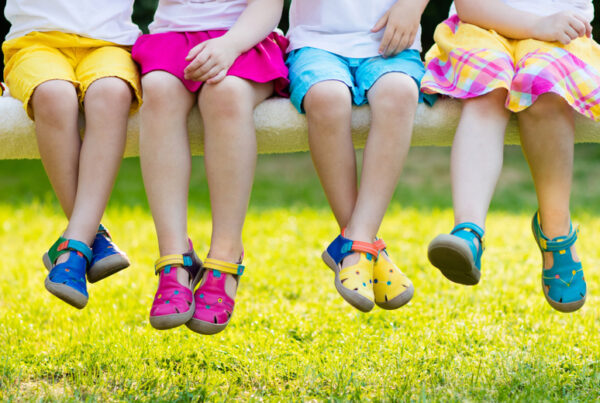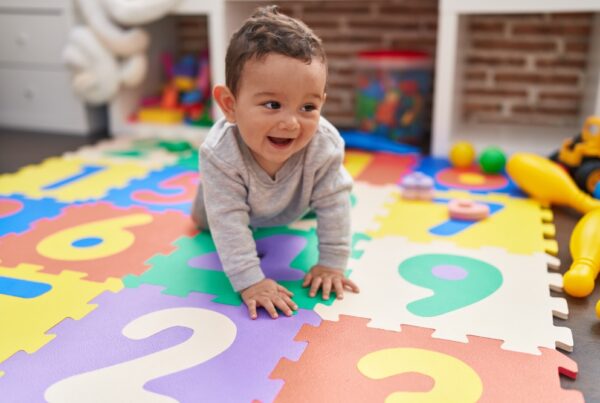Although academic achievement remains a key focus for education systems, fostering emotional and physical wellbeing is increasingly becoming an even more central objective, particularly within early education.

In the last 40 years, there have been many different theories and perspectives concerning when a child is supposably ready for the daily demands of ‘big school’ life.
Previously, popular opinions were more aligned with a maturational perspective, focusing on a child’s cognitive maturity level. However, in recent years, perspectives have shifted towards a more holistic, multidimensional definition, emphasising the significance of personal and social skills, and the roles in which families and the wider community play in supporting a child’s development.
Evidently, there is yet a definitive definition for school readiness that suitably fits every child and their individual capabilities. However, researchers have proposed that broadening the scope from just certain literacy and mathematic skills to include those associated with physical, social, attentional, and self-regulation development will help discern a child’s future academic and behavioural outcomes and when they will be fit for the classroom environment.
We spoke to Gold Coast early childhood educator Miranda Fairburn to better understand the phenomena of ‘school readiness’ and why she firmly believes in its significance from a classroom perspective.
Q: Miranda, can you give us a little insight into your background as an educator?

Sure! I have been working within the early years space for just over eight years. I am so grateful that my first three years of teaching were in a Pre-Prep (Kindergarten) classroom. I saw holistic, play-based, and child-initiated learning every day. I saw children fall in-love with school and develop fundamental problem-solving and critical thinking skills. I also discovered play as the unmatched driver of success for all abilities and stages.
I moved into teaching Prep (Foundation) and fell in love with this year of schooling. Facilitating reading, writing and mathematical knowledge and skills through play became my passion. I was then given the opportunity to teach Year 1 and have enjoyed the challenge of integrating my passion for play and holistic education with measured curriculum success.
Q: Why did you choose early childhood education?
This birth to five years age group caught my attention with their constant source of energy, desire to achieve, and playful nature. My teaching is fuelled by their inquisitive mind that keeps me on my toes, requiring innovation, creativity, and a spontaneity that matches theirs. They just love learning! Their brain is learning all the time through questioning, mistake-making, play, and conversation. I get to be a first-hand witness and facilitator of this – there is nothing more satisfying in my opinion.
Q: In your opinion, what is school readiness and why is it so important?
School readiness refers to whether a child can easily (key word) transition from a play-based learning environment to a formal one. It is looking at what is required from the child socially, emotionally, cognitively, and physically for success to be felt and experienced in that first year of school.
When a child feels success, they are happy to go to school, they are driven to participate in the full program and thrive when measured against curriculum outcomes. It is SO important that we look at every individual child’s strengths and gaps BEFORE starting school as these gaps can be the difference between feeling successful and enjoying school and not enjoying it, feeling as if it is beyond their current capabilities. I recently shared this on my Instagram page:
“Age does not always make a child ready for a world of expectation, routine, and regular change. Maturation, early experiences, and play is the magic formula for success in school. Do not get me wrong, school is fun! Trust me; I have been a puppeteer, an actress, I’ve played numerous book and TV characters, sung a variety of songs to help remember hygiene routines and turned classrooms into whole new worlds for my kiddos. But there are some children that cannot access this fun; they struggle with change, extreme emotions, following instructions, anxiety, fatigue, developmental delays, and the confusing world of being “a friend”. With these roadblocks, they miss it – they miss the extraordinary world that is learning and that is school. I do not want them to miss it”.
Q: Why did you create your Instagram account ‘All Round Ready’?
Working with families and parents is one of the best parts of early years teaching – you are both stakeholders and primary role models in a child’s learning journey. The most common conversation I have with parents is centred around their child’s love of school, their overall happiness in learning, and how confident they are in the classroom. In fact, many parents would come to parent-teacher interviews with one question: is my child happy?
It led me to have conversation after conversation around social and emotional development, asking questions such as: How resilient are they? Confident? Socially capable? Emotionally regulated? These markers of success lead to a child feeling happy at school. These skills are developed and strengthened in play, specifically high doses of child-initiated play. Sadly, as children progress through their first few years of formal school, there is less chance for this type of play which means less chance for these skills to develop.
The more of these conversations I had, the more I realised how needed these conversations are BEFORE formal school begins.
All Round Ready felt like a tool I could use to bring these conversations into the home of children about to start school without it being as formal as parent-teacher interviews.
Q: What are common signs a child hasn’t been prepared enough for school?
When parents ask me if their child is ready to start school, I like to use five main questions as a guide:
- Do they get frustrated easily?
- Do they struggle to add others into their play?
- Do they struggle to follow multiple step instruction?
- Do they rely on you for self-care tasks?
- Do they struggle to stay at play or craft activities for longer than 10 minutes?
If the answer to any of these is ‘yes’, then we have instant feedback on where the child might struggle in school.
If they struggle to add others into their play, they might not have the social maturity to share, resolve conflict or contribute with 24 other little learners.
Lacking self-regulation skills is where I see children struggle with school the most. Self-regulation helps give the right reaction to the situation. If a child falls apart because they can’t pack their bag, with all of this adrenaline and emotion, the following Maths lesson will be a struggle.
Q: Is the current Australian Curriculum set up in a way that supports young school children new to the schooling system?
The Australian curriculum gives teachers a lot. As well as year level descriptors with age-appropriate content, the curriculum also encourages personal and social capabilities; these are capabilities that are expected to be infused into the planned teaching sequences.
Sadly, the curriculum is also ‘content-heavy’, and teachers are time poor. Report cards and data show literacy and numeracy scores as primary indicators of how a child is achieving.
While I have met wonderful educators that do plan and prioritise social and emotional teaching times and play as an avenue for learning, teaching the curriculum content descriptors is priority number one and tracking academic results can be a focus. After all, this is what we are hired to do (it’s always more than this but never less).
Supporting young children as they begin school comes down to individual teachers – their teaching style and their training in the early years.
Q: Have you noticed a shift in the general school readiness of children before and after the pandemic?
Sadly, absolutely.
Routine and predictability bring a feeling of safety. Being in and out of school, hearing news stories, watching parents worry about jobs, health, and housing has all impacted our children.
As educators, we have seen increased anxiety, difficulty adjusting to change in the classroom, and separation difficulties. All this impacts progression in learning.
Q: What do you say to parents/guardians who may feel overwhelmed in preparing their child for school?
School readiness is not doing ‘more’ or about adding to your plate; it’s about a fair and honest assessment of your child and ensuring you are making the right decision in starting school at the right time. Just because they are at a school age does not mean they’ll thrive.
Is a bonus year of play going to give them the chance to start school on the front foot, feel successful, and thrive in the more formal environment? If so, it is a conversation worth having.


Q: What are some ‘school ready steps’ you encourage in your own classroom/for parents to do at home?
School-ready steps are not new steps – it is everything we know is vital for children to thrive and develop. Play. It’s that simple.
There is a reason you do not have to teach a child to play, it is food for their brain – they are hard-wired to learn through this medium.
Child-initiated play is the best kind, it helps develop confidence and creative thinking.
Reading to your child as often as possible (at least once per day) develops language and instils a love of text and its meaning before learning letters and sounds.
Allowing challenge and conflict in every-day life encourages problem-solving and resilience skills. I have plenty more tips and ideas on my page.
Q: Many parents and professionals respond negatively towards the idea of ‘school readiness’, as it excludes some children from the opportunity of school because they need to meet a specific benchmark to be acceptable. What are your thoughts on this?
While I agree that benchmark assessment tools and achievement standards CAN be developmentally insensitive in the early years, they can also be a great indicator of progression.
For example, as a teacher, the worst thing I could do is move a child onto a reading level that they are not ready for. If their assessment shows they need help with decoding and fluency then I provide unique opportunities to develop those areas, allow the child to feel successful and confident on that reading level, and then provide them the next appropriate challenge when they are ready.
A child who is expected to perform beyond their capabilities will only feel a negative disposition towards that learning area. The same goes for a child not quite ready for formal school. If observations shows where they might struggle in school, why would we ask them to do what is too challenging?
The great news is that there is no formal assessment for children entering school and there is no bell curve that ranks children against each other. It is observational.
I think the best way that we can view school readiness is to look at our own unique child and consider whether they will thrive or merely survive in a prep classroom, and what do we want for them?
Q: Any favourite resources?
- Ginny from @courageous.cubs provides upbeat and easy to digest content around behaviour and emotional intelligence.
- Leah from @leahandthefirstyears is an exceptional early years’ teacher in New Zealand who gives wonderful tips and ideas for play as well as current neuroscience research in the early years.
- For parenting books, I highly recommend clinical psychologist Judith Locke; particuarly The Bonsai Child, which details modern parenting trends, and offers practical and realistic strategies for parents, helping hundreds of parents already.
- A lot of the research I mention on @allroundready comes from Nathan Wallis, a neuroscientist based in New Zealand. His presentations have helped me connect what I am seeing in the classroom to what brain development research is saying. He also provides professional development to educators and carers as well as parent seminars.
Final comments
Nothing helps children find success in school more than early intervention. Speaking to a paediatrician regularly, keeping up with hearing and vision appointments, and tracking developmental milestones are the best ways to catch delays. There is so much support in early years intervention to use to your advantage!



